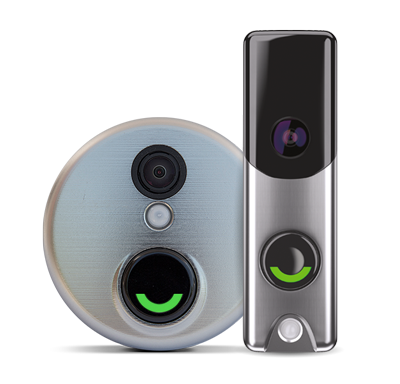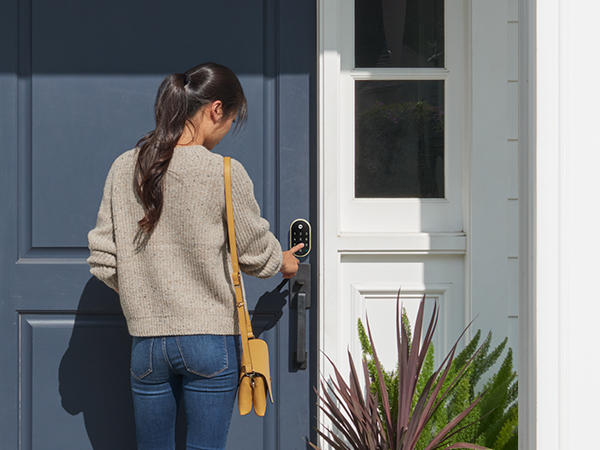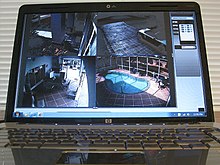
Wireless security systems offer many advantages over traditional wired systems. One advantage is that they are simpler to use. Instead of an alphanumeric keypad they have colorful touchscreen displays. It is easier to upgrade to a wireless system than a hardwired one, and you can easily transfer all your devices to the new system. All you need to do is connect the old hardwired devices to a wireless panel using a wired to wireless converter.
Wireless home security systems have their disadvantages
While wireless home security systems can offer many benefits, there are also some drawbacks. They are also susceptible to interference or failure. These issues can occur due to many factors, including walls, power lines, and microwave ovens. These issues can also be affected due to weather conditions or malfunctioning sensors. These can cause false alarms, leaving you and your property at risk.

A second disadvantage of wireless home alarm systems is their limited range. The range they have in open air is only a few hundred meters, which is too short for larger homes. Additionally, wireless systems are battery-operated so that they won't stop working if their batteries run low. This means homeowners might forget to test their batteries every now and again. Wireless home security systems can't be used if they aren't installed close to the central control unit.
Wireless home security systems can be customized. Some wireless systems can be managed remotely via an app on a smartphone. Others use hard-wired installations that require a technician to visit the property.
Cost of wired house security systems
If you are looking to install a home security system for your home, you should know that wired systems typically cost more than wireless ones. This is because a wired system involves putting sensors on windows and doors and is powered by electricity. In addition to the upfront costs, you may also need to pay a monthly monitoring fee. Wired systems are best installed by professionals. Some companies offer consultations for free to determine which type would work best in your home.

Prices for wired home alarm systems can vary depending on how large the system is and what monitoring service it uses. When monitoring is included, many providers offer discounts on installation. The installation process is usually completed by a security technician, but can also be done by electricians or general contractors. Wired systems are more labor-intensive and therefore more expensive per hour. Additionally, wired systems may need more maintenance.
FAQ
Can I do it myself?
Yes! You can install a home alarm yourself if you know what you're doing. If you are not confident in installing it yourself, you can hire an expert to assist you.
What is the easiest home security system to install
The best home security systems are those that do not require any installation at all. They are called "plug & play" systems, and they work like magic. It is as simple as plugging them into the power socket and connecting them to the Internet using a wireless network router. Once you have connected everything, it will be possible to access it from anywhere on the planet.
Are motion sensors capable of triggering alarms?
There have been motion sensor alarm systems for decades. They have grown in popularity due to increasing burglaries and thefts. These devices can be expensive and are not suited for use in cabinets. If you are looking to protect your home from potential intruders, a motion sensor alarm system might be worth considering.
Which Home Security Systems can't be hacked
The definition of hacking is key to the answer. Hacking refers unauthorized access to computer systems and networks. Home security systems that do not have software that allows for remote control of the system cannot be hacked. They will not permit anyone to enter your house without your permission.
Some home security systems can be hacked by anyone who has access to the internet. These systems typically require a password for operation, so anyone who knows the correct password can hack them.
Which is better: home security cameras or home security systems?
Home security systems are more effective than home security cameras because they can detect sounds and movement, even if no one is present in the room where the system is installed. On the other side, home security cameras are much cheaper than home alarm systems and can be easily mounted to windows and doors.
Statistics
- That's probably why Cove has a whopping 98%* customer retention rate. (safewise.com)
- Most home security companies will charge you around 75% of the remaining term of your contract if you cancel early—and some require 100%.Related questionsWhat type of contract length can I expect from security providers?Home security system cancellation (safewise.com)
- Most home security companies will charge you around 75% of the remaining term of your contract if you cancel early—and some require 100%.Related questionsWhat type of contract length can I expect from security providers?Home security system cancellation (safewise.com)
- Unlike other online safety services that charge up to 100 percent of your monthly fee, Cove charges no upfront fees and has no hidden costs.
External Links
How To
How to Install Smart Home Wireless Security System
How to set up smart home wireless security systems
It is important to determine what level of security you desire for your home. There are many different types of systems available such as door locks, motion sensors, keypads, cameras, and even alarm systems. The most common types of security systems include:
-
Door Locks: If you only want to prevent anyone from entering your home without you permission, then this option is for you. There are two types of deadbolt locks: lever locks and standard deadbolt locks. Lever locks are simpler to use than the standard one.
-
Motion Sensors - Another great way to manage who enters your house. It works just like a light switch but turns on and off when someone walks near it. Motion sensors can be equipped with a camera that sends images back from your phone if it senses movement.
-
Keypad-A keypad is another option that allows you to remotely enter codes. You can use a keypad, for example, to unlock your garage after you have left your keys in your car.
-
Cameras - While most people view cameras as surveillance tools, there are many ways you can use them. For example, you could set up a camera outside your front door and watch it live via your smartphone. You can also program your camera so that it takes photos every few moments and stores them locally on your computer. You can then review the photos later, whenever you wish.
-
Alarm Systems – An alarm system is designed to notify you of an emergency. These systems send a signal to your email or phone. You can view the video and see what happened after you get the notification.
-
Smoke Detectors- Although most homes don't have smoke detectors, new construction should include them. These are very affordable and easy to put in.
-
Flood Detectors: Flooding is one the greatest threats to homeowner's properties. In fact, flooding is responsible for more damage than any other natural disaster. Flood detectors are crucial to protect against this threat.
-
Carbon Monoxide Detectors: Another crucial safety device often overlooked is the carbon monoxide detection. Because this gas is odorless and colorless, it's very dangerous. A CO detector is vital to your safety and that of your family.
-
Water Leak Detectors - One of the worst things that can happen to a homeowner is water damage. Many people don’t realize how to check for water leaks until it’s too late. It's because leak detectors can be a valuable addition to any property.
-
Burglar bars - Burglars won't be attracted to houses that appear vacant. So, adding burglar bars to windows and doors can help deter potential thieves.